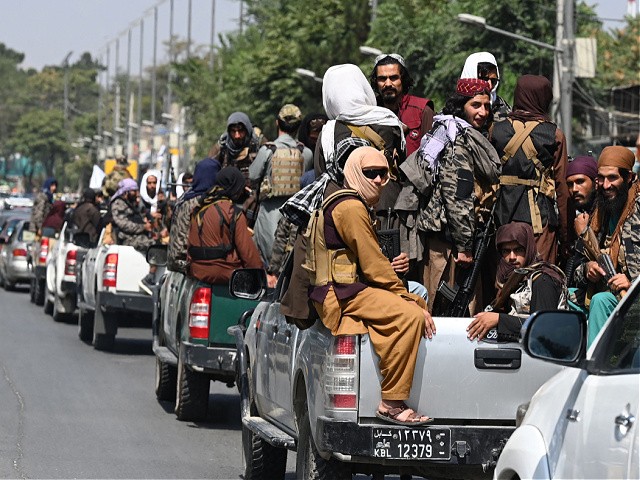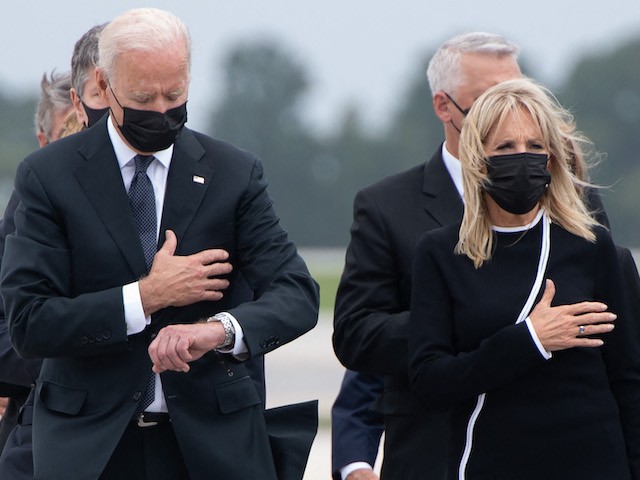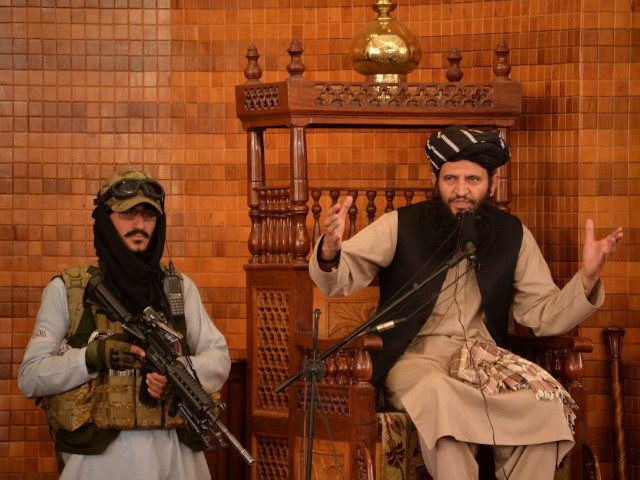The U.S. has successfully prevented the Taliban terror group from accessing roughly $10 billion in reserves in Afghanistan’s central bank, the New York Post reported Tuesday.
While assessing Afghanistan’s rapidly deteriorating economy following the Taliban’s takeover of the country last month, the Post cited a September 8 article by Bloomberg News detailing how the U.S. recently “halted $9.4 billion in reserves to the country’s central bank.”
The Taliban terror group seized control of Afghanistan after deposing Kabul’s U.S.-backed government on August 15. The jihadist group’s toppling of Kabul prompted the U.S. government to block the Taliban’s access to “virtually all of the Afghanistan central bank’s $9 billion in reserves, most of which are held in the U.S.,” Deutsche Welle (DW) reported August 24.
This action, coupled with a similar fund blockage ordered by the International Monetary Fund (IMF), caused an acute shortage of U.S. dollars in Afghanistan starting in mid-August.

A convoy of Taliban fighters patrol along a street in Kabul on September 2, 2021. (Photo by AAMIR QURESHI/AFP via Getty Images)
“With no new shipment of dollars arriving to shore it up, the local currency, afghani, has crashed to record lows, sending prices soaring. Prices of staples like flour, oil and rice have risen by as much as 10 percent-20 percent in a few days,” DW noted on August 24.
Shah Mehrabi, a senior board member of the Afghan central bank, officially “Da Afghanistan Bank,” told Bloomberg News on September 8 he had been “lobbying members of [the] U.S. Congress and policymakers” for a “conditional release” of the roughly $9.4 billion in frozen funds.
“President Biden is not hurting the Taliban or the current regime,” Mehrabi said. “This is really hurting everyday Afghans and they will push them into further poverty.”
“With no access to reserves, Afghanistan is likely to face a liquidity crisis with banks forced to close,” Mehrabi, who is also a professor of economics at Montgomery College in Maryland, told Bloomberg.

US President Joe Biden looks down alongside First Lady Jill Biden as they attend the dignified transfer of the remains of a fallen service member at Dover Air Force Base in Dover, Delaware, August, 29, 2021, one of the 13 members of the US military killed in Afghanistan last week. (Photo by SAUL LOEB/AFP via Getty Images)
“This, in turn, will affect private companies, which won’t have access to their bank deposits, and severely impact an economy that depends on imports for virtually all its needs,” he explained.
Robert Hockett, a Cornell University professor of law and finance, told Business Insider on September 8 he believed it was “all but impossible… both practically and legally” that the Taliban would gain access to the roughly $9.4 billion in Da Afghanistan Bank reserves.
“[T]he United States has the legal authority to freeze assets that were held by a government when that government is replaced by a nongovernment,” Hockett explained. The U.S. does not recognize the Taliban as a “legitimate government,” he noted. This means the jihadist group has “almost no chance” of getting its hands on the funds.
“[I]t’s likely that most of the assets will remain frozen in US bank accounts for decades to come,” the professor predicted.

COMMENTS
Please let us know if you're having issues with commenting.